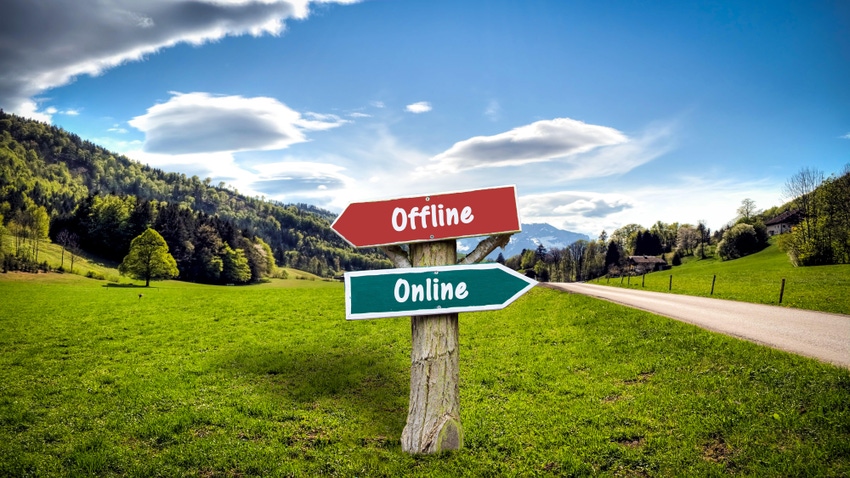Verizon says FCC 'should create an Office of Civil Rights'
The FCC 'should create an Office of Civil Rights,' said Verizon in a letter this week. The operator also asked the FCC to consider 'technical and economic feasibility' in setting digital discrimination rules.

Verizon this week told the FCC that it supports the idea of creating an Office of Civil Rights within the Commission. The matter was discussed in a meeting between Verizon and the FCC, and then summarized in a letter, regarding the FCC's ongoing digital discrimination proceeding.
That proceeding began in 2022, as mandated by the 2021 Infrastructure Investment and Jobs Act (IIJA). At the time, the FCC asked commenters if it should create such an office:
"Would establishing a new organizational unit be preferable to distributing this expertise among the Commission's current Bureaus and Offices? If we did establish an Office of Civil Rights, what would be the scope of its authority and responsibilities?" asked the FCC.
In its letter this week, Verizon said that the FCC "should create an Office of Civil Rights," adding: "Verizon believes that such an office could play an important role in finding solutions to addressing these issues."
Verizon noted that it agreed with other commenters on the matter. Others that have expressed or indicated support for an Office of Civil Rights include the National Urban League (NUL), the Leadership Conference on Civil and Human Rights, Public Knowledge and AT&T.
In a filing in May, the National Urban League said establishing an OCR would "help assist the FCC in thoughtfully working through critical proceedings that impact the communications needs of historically underserved communities including digital discrimination and digital equity as a whole."
In another filing in April, the NUL said "the guiding mission" for such an office should be "to ensure equitable access to communications services and to promote vigorous enforcement of non-discrimination statutes at the intersection of communications and civil rights law."
Similarly, in a filing in February, the Leadership Conference told the FCC the OCR "must be multi-functional, like civil rights offices within other agencies" and that many proceedings "would benefit from expert staff who can look at these proceedings through a civil rights and equity lens." Further, said the group: "In order to properly engage in civil rights issues, the OCR should have sufficient capacity to identify and address communications issues impacting marginalized communities. Other agencies house expertise within an independent, central unit, and it makes sense for the FCC to do the same."
AT&T also indicated support for an OCR in its latest letter to the FCC on the matter, filed in late June, noting "the potential use of a new Office of Civil Rights using data to work toward more constructive solutions."
Notably, the suggestion came in the context of AT&T's broader suggestion for a thorough complaint process that would include "informal engagement" with providers:
"The Commission should adopt a complaint process that avoids immediately putting parties in an adversarial position, such as by having Commission staff first gather and analyze digital discrimination complaints to identify patterns and practices of concern, and then to engage informally with providers to better understand market dynamics and provider practices to identify solutions to facilitate equal access to broadband in a particular area," said the operator.
Defining digital discrimination
While some service providers and advocates agree on the idea of establishing an OCR at the FCC, there remains disagreement on what digital discrimination is and how to address it.
Establishing a definition is one question at the core of the FCC's rulemaking proceeding, and has been a source of disagreement between industry representatives and consumer groups. While the industry supports a definition of "intentional" discrimination, digital equity advocates are pushing the FCC to leave room for "unintentional" discrimination as well.
As a coalition of public interest groups summarized in a filing last year: "The Commission must use a discriminatory impact standard, focusing on whether low-income and marginalized communities are unable to connect to broadband in a manner that is comparable to their peers – or at all."
Another filing from the National Digital Inclusion Alliance (NDIA) in April noted that "digital discrimination occurs whenever an ISP's policies and practices result in differential access to broadband service, regardless of if that outcome is intentional or not. Therefore, evidence of disparate impact should be sufficient to bring claims of discrimination."
Service providers share a different view. In its letter this week in which it supported calls for an FCC Office of Civil Rights, Verizon reiterated its position that "absent a finding of intentional discrimination — there should be no basis for a digital discrimination claim" where consumers have an "equal opportunity to subscribe" to broadband. The company also emphasized that the FCC consider "technical and economic feasibility" in the context of this statute.
That position is similar to one expressed by NTCA–The Rural Broadband Association earlier this year. The organization wrote to the FCC that, in instances of technical or economic infeasibility, "the disparate impacts in reaching subscribers is not rooted in discriminatory intent by the provider but rather are the result of conditions that are wholly unrelated to the protected class of subscribers and which inform legitimate businesses decisions."
USTelecom echoed the same after a meeting with the FCC in late June, during which the group "emphasized the importance of technical and economic feasibility to the Commission's analysis," according to a filing.
To be sure, Congress has instructed the FCC to do just that. As per the IIJA: "...the Commission shall adopt final rules to facilitate equal access to broadband internet access service, taking into account the issues of technical and economic feasibility presented by that objective."
But the law also leaves some room for interpretation in stating that the FCC and attorney general must prohibit "deployment discrimination" based on the "income level of an area," as well as "predominant race or ethnicity composition of an area" and "other factors the Commission determines to be relevant based on the findings in the record developed from the rulemaking."
Rules coming... soon?
As per the IIJA, the FCC is required to implement digital discrimination rules that will facilitate equal access to broadband within two years of that law's passing, or by end of November 2023.
While Anna Gomez, President Biden's nominee for fifth FCC Commissioner, recently made it through a committee vote, it's unclear if she'll be confirmed by the Senate before the FCC is expected to vote on digital discrimination rules this fall.
At her confirmation hearing in June, Gomez was pressed for her views on the digital discrimination matter by Sen. Ted Cruz (R-TX) but she did not offer specifics: "The issue of digital discrimination is something I know Congress tasked the Commission with looking at last year, but I need to be able to sit down and dig into the record and look at the notice of proposed rulemaking in order to be able to give you an informed answer," she said.
About the Author(s)
You May Also Like












